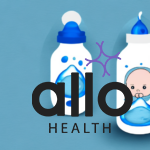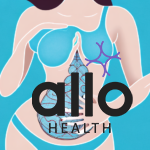10 Fruits To Eat During Pregnancy For Fair Baby

Allo Health is dedicated to personalized well-being, offering support and trusted information tailored to individual health goals. The platform emphasizes human-generated content, led by a distinguished medical team of experts, including physicians and sexual health specialists. Their commitment to credibility involves rigorous fact-checking, authoritative research, and continuous updates to ensure accurate, up-to-date information. Allo Health's unique approach goes beyond conventional platforms, providing expert-led insights and a continuous commitment to excellence, with user feedback playing a crucial role in shaping the platform's authoritative voice.

Dr. Aswathi P T earned her MBBS degree and completed her internship at Government Medical College, Kozhikode, and possess diverse professional background spanning 3.5 years. Her experience includes a wide range of healthcare settings, including health centers, hospitals, and teleconsultation services.
Why This Was Upated?
Our experts continually monitor the health and wellness space, and we update our articles when new information became available.
Updated on 10 April, 2024
- Article was updated as part of our commitment to diversity, equity, and inclusion.
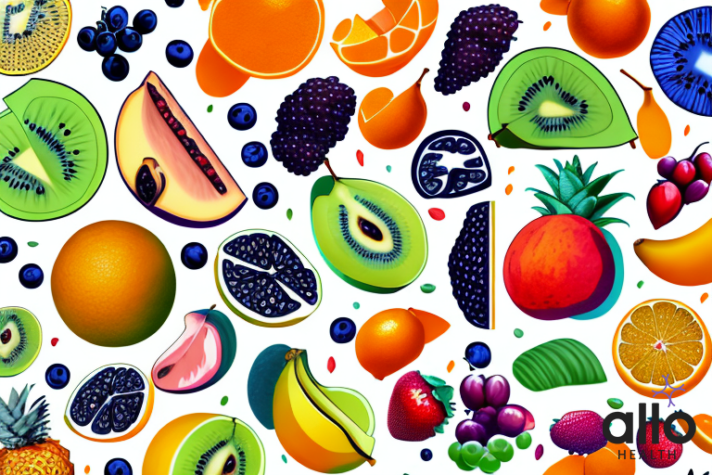
"The following blog article discusses food and diet-related information for general educational purposes. However, it is important to note that the information provided is not intended as personalized dietary advice and should not be considered a substitute for professional guidance from a registered dietitian or qualified healthcare professional. Before making any significant changes to your diet or nutrition plan, it is recommended to consult with a registered dietitian or healthcare professional.
Book consultation
Dietary changes can have a significant impact on your overall health and well-being. It is important to approach any changes to your diet in a balanced and sustainable manner, ensuring that you meet your nutritional needs and avoid any potential nutrient deficiencies. Rapid or extreme changes in dietary patterns can be detrimental to your health and may require professional guidance.
It is crucial to note that any specific dietary recommendations or guidelines mentioned in this article may not be appropriate for individuals with specific medical conditions, allergies, or intolerances. A registered dietitian or healthcare professional can provide individualized advice, including modifications or alternative food choices to accommodate your unique circumstances.
The information provided in this article may not encompass all possible dietary considerations or account for the latest research and nutritional guidelines."
Pregnancy is a delicate and crucial time for both the mother and the developing baby. Expectant mothers often receive advice from various sources, ranging from well-meaning friends and family to dubious online forums. One common piece of advice that has circulated for generations is the notion that consuming certain fruits during pregnancy can influence the baby’s skin complexion, aiming for a fairer complexion. However, it’s essential to address this notion for what it is: a myth.
The Myth of Fruits Influencing Baby’s Skin Tone
- Genetic Determinants:
- The colour of a baby’s skin is primarily determined by genetic factors inherited from both parents.
- Genes play a crucial role in regulating the production and distribution of melanin, the pigment responsible for skin colour. This genetic code is established at the moment of conception, influencing the baby’s skin tone independent of dietary factors during pregnancy.
- Complexity of Melanin Production:
- Melanin production involves the synthesis of two types: eumelanin (brown and black pigments) and pheomelanin (red and yellow pigments).
- The combination and ratio of these pigments, dictated by genetic factors, determine the unique skin colour of the baby.
- Dietary choices, including fruit consumption, have no proven influence on these genetic processes.
- Misconception of Cause and Effect:
- The myth suggests a causal relationship between a mother’s fruit intake and the baby’s skin tone, but this oversimplification ignores the intricacies of genetics.
- Fruit consumption may contribute to overall health, but it does not dictate or alter the inherent genetic blueprint for skin colour.
- Scientific Lack of Evidence:
- Despite the widespread belief, there is a notable absence of scientific evidence supporting the idea that specific fruits can impact the fairness of a baby’s skin.
- Skin colour is a polygenic trait influenced by a combination of multiple genes, making it resistant to simple dietary interventions.
- Importance of a Balanced Diet:
- While fruits are an essential component of a healthy diet during pregnancy, their influence on the baby’s skin tone is negligible.
- A balanced and nutrient-rich diet is crucial for the overall well-being of both the mother and the developing baby.
- Focus on Realistic Expectations:
- Understanding the role of genetics in determining skin colour allows expectant mothers to approach pregnancy with realistic expectations.
- Appreciating the diversity of natural skin tones fosters a positive and informed perspective on the uniqueness of each individual.
In conclusion, the myth of fruits influencing a baby’s skin tone is a misconception that stems from a lack of understanding of the complex genetic processes involved. Expectant mothers are better served by prioritizing a healthy, well-balanced diet for overall well-being, rather than holding onto unfounded beliefs about altering a baby’s inherent characteristics through fruit consumption.

The Influence of Genetics on Skin Color
The intricate tapestry of human skin colour is woven by the interplay of genetic factors, shaping the diverse spectrum that defines individuals across the globe. Understanding the influence of genetics on skin colour involves delving into the molecular mechanisms that orchestrate the synthesis and distribution of melanin, the pigment responsible for the myriad hues observed in human skin.
- Genetic Basis:
- Skin colour is primarily determined by genes inherited from both parents. Multiple genes contribute to this trait, making it polygenic.
- The genetic code dictates the production of melanin in specialized cells known as melanocytes, which are located in the epidermis, the outermost layer of the skin.
- Melanin Production:
- Melanin comes in two main forms—eumelanin and pheomelanin. The relative amounts and distribution of these pigments are key factors in determining skin colour.
- Eumelanin is responsible for brown and black pigments, while pheomelanin contributes to red and yellow pigments.
- Genetic Variation:
- Individuals inherit a unique combination of genes from their parents, resulting in a wide range of skin tones.
- Variations in these genes can influence the type and amount of melanin produced, contributing to the diversity observed in human populations.
- Adaptation to Sunlight:
- The evolution of skin colour is also linked to adaptation to different levels of sunlight exposure in various geographic regions.
- People in regions with intense sunlight often have darker skin, protecting against the harmful effects of ultraviolet (UV) radiation.
- Conversely, populations in regions with less sunlight exposure tend to have lighter skin, allowing for efficient synthesis of vitamin D in low-light conditions.
- Inheritance Patterns:
- Skin colour inheritance follows a complex pattern influenced by multiple genes, making predictions challenging.
- Offspring inherit a combination of genes from both parents, leading to a diverse array of skin tones even within the same family.
- Environmental Factors:
- While genetics form the foundation of skin colour, environmental factors such as sun exposure and lifestyle can modulate its expression.
- Sun exposure can influence melanin production, leading to changes in skin pigmentation over time.
Understanding the influence of genetics on skin colour emphasizes the intricate and multifaceted nature of this trait. It serves as a reminder that the beauty of diversity is encoded in our genetic makeup, reflecting the rich tapestry of human heritage and evolution.
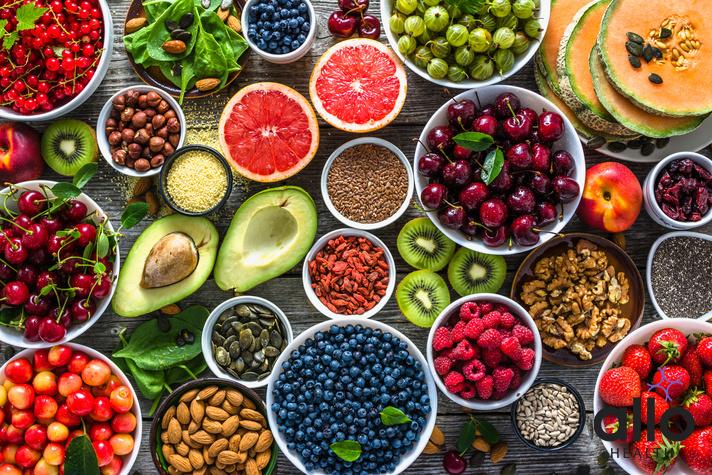
Nutrition and Pregnancy
Pregnancy is a transformative journey that places significant demands on the body, requiring careful attention to nutrition for the health and development of both the mother and the growing baby. A well-balanced and nutrient-rich diet is crucial during this period to provide the essential elements necessary for optimal fetal growth and maternal well-being.
- Foundations of a Healthy Diet:
- A variety of fruits, leafy vegetables, whole grains, lean proteins, and dairy products form the foundation of a balanced pregnancy diet.
- These food groups provide a diverse range of nutrients, including vitamins, minerals, proteins, and carbohydrates, essential for the overall health of both mother and baby.
- Folate for Neural Tube Development:
- Folate or folic acid, a B vitamin, is critical in early pregnancy for the development of the baby’s neural tube.
- Foods rich in folate include leafy green vegetables, citrus fruits, beans, and fortified cereals.
- Calcium for Bone Development:
- Calcium is essential for the development of the baby’s bones and teeth.
- Dairy products, fortified plant-based milk, and leafy green vegetables are excellent sources of calcium.
- Iron for Blood Health:
- Iron is crucial for preventing anaemia in both the mother and baby.
- Red meat, poultry, beans, and fortified cereals are good sources of iron that support healthy blood development.
- Omega-3 Fatty Acids for Brain Development:
- Omega-3 fatty acids, particularly DHA, play a key role in the development of the baby’s brain and eyes.
- Fatty fish like salmon, walnuts, chia seeds, and flaxseeds are excellent sources of omega-3 fatty acids.
- Protein for Tissue Growth:
- Protein is essential for the development of the baby’s tissues, including muscles and organs.
- Good sources of protein include lean meats, poultry, fish, eggs, dairy products, beans, and lentils.
- Hydration:
- Staying adequately hydrated is crucial during pregnancy.
- Water is essential for maintaining amniotic fluid levels, supporting the increased blood volume, and aiding digestion.
- Moderation and Variety:
- Pregnancy is not a time for extreme diets; rather, moderation and variety are key.
- A diverse range of nutrients from different food sources ensures that both the mother and baby receive a comprehensive array of essential elements.
- Avoiding Harmful Substances:
- Limiting caffeine, avoiding alcohol, and steering clear of high-mercury fish are essential precautions during pregnancy.
- Consulting with healthcare providers about specific dietary needs and potential food restrictions is crucial for a healthy pregnancy.
In conclusion, maintaining a well-balanced and nutritious diet during pregnancy is fundamental to ensuring the health and well-being of both the expectant mother and the growing baby. By embracing a varied and wholesome approach to nutrition, mothers can lay the groundwork for a healthy pregnancy and contribute to the optimal development of their child.
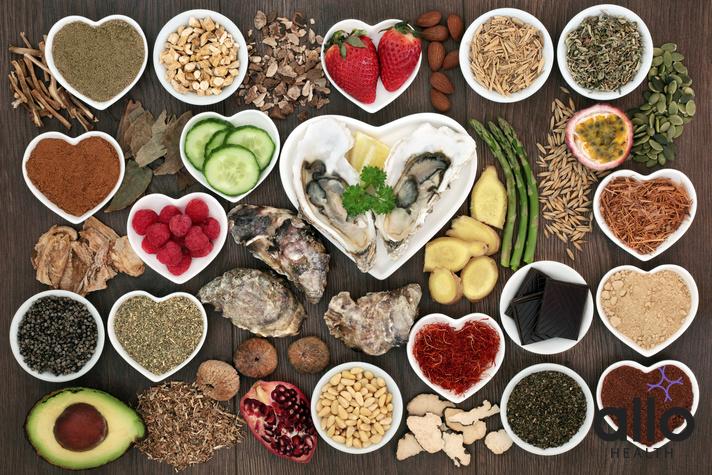
Choosing Nutrient-Rich Fruits
Incorporating a variety of nutrient-rich fruits into the diet during pregnancy is a delicious and effective way to ensure that both mother and baby receive essential vitamins and minerals. Fruits contribute a spectrum of nutrients that support fetal development, boost maternal health, and add natural sweetness to the daily diet. Here’s a guide to selecting nutrient-rich fruits for a healthy and vibrant pregnancy:
- Oranges: Vitamin C Powerhouse
- Oranges are rich in vitamin C, a vital nutrient for the development of the baby’s skin, bones, and blood vessels.
- The refreshing taste of oranges also helps combat nausea, a common pregnancy symptom.
- Strawberries: Antioxidant Boost
- Packed with antioxidants, strawberries contribute to a healthy immune system.
- They are also a good source of vitamin C, manganese, and folate.
- Bananas: Potassium and Energy
- Bananas are high in potassium, which helps maintain proper fluid balance and supports healthy blood pressure levels.
- Their natural sugars provide a quick energy boost, combating fatigue.
- Kiwi: Fiber and Vitamin K
- Kiwi is a natural source of fibre-rich fruit that aids digestion and helps prevent constipation, a common concern during pregnancy.
- It is also a good source of vitamin K, important for blood clotting.
- Mangoes: Vitamin A and Fiber
- Mangoes are rich in vitamin A, crucial for the development of the baby’s eyes, skin, and immune system.
- The fibre content in mangoes supports digestive health.
- Avocados: Healthy Fats
- Avocados are a nutrient-dense fruit, providing healthy monounsaturated fats.
- They also contain folate, potassium, vitamin K, and vitamin E.
- Apples: Fiber and Hydration
- Apples are a rich source of dietary fibre, promoting digestive regularity.
- The high water content in apples contributes to hydration.
- Papayas: Enzyme Papain
- Ripe Papayas contain an enzyme called papain, which aids digestion and can be beneficial for preventing constipation.
- They are also rich in vitamin C and folate.
- Berries (Blueberries, Raspberries, Blackberries): Antioxidant-Rich
- Berries are loaded with antioxidants, which help combat oxidative stress and inflammation.
- They are also rich in vitamins, fibre, and folate.
- Pineapple: Bromelain and Vitamin C
- Pineapple contains bromelain, an enzyme that may help with digestion and reduce inflammation.
- It is a good source of vitamin C, supporting the immune system.
Remember, enjoying a diverse range of fruits not only provides essential nutrients but also adds variety and flavour to your diet. However, it’s crucial to consult with healthcare providers about specific dietary needs and potential allergies during pregnancy. Embracing a colourful and nutrient-rich fruit selection is a delightful way to nurture both the mother and the developing baby throughout this special journey.

The Importance of Hydration
Staying adequately hydrated is a cornerstone of a healthy pregnancy, offering a myriad of benefits for both the expectant mother and the developing baby. As the body undergoes significant changes to support fetal growth, maintaining proper hydration becomes essential. Here’s a closer look at the importance of hydration during this transformative period:
- Amniotic Fluid Levels:
- Hydration plays a crucial role in maintaining adequate levels of amniotic fluid, the protective liquid surrounding the baby in the womb.
- Sufficient amniotic fluid is vital for cushioning and protecting the baby, aiding in the development of muscles, limbs, and the digestive system.
- Nutrient Transport:
- Water serves as a carrier for essential nutrients, facilitating their transport to the developing fetus.
- Proper hydration ensures that nutrients, including vitamins and minerals, are effectively delivered to support the baby’s growth and development.
- Blood Volume Expansion:
- Pregnancy leads to an increase in blood volume to meet the growing demands of the developing baby and the placenta.
- Adequate hydration supports this expansion of blood volume, helping to prevent issues such as low blood pressure and dehydration-related complications.
- Digestive Health:
- Hydration is crucial for maintaining healthy digestion during pregnancy, and preventing common issues like constipation.
- Sufficient water intake softens stools, promoting regular bowel movements and reducing the risk of haemorrhoids.
- Temperature Regulation:
- Pregnant women are more susceptible to fluctuations in body temperature, and proper hydration aids in regulating body temperature.
- This is particularly important as overheating can pose risks to the developing fetus.
- Prevention of Urinary Tract Infections:
- Hydration helps flush toxins from the body, reducing the risk of urinary tract infections (UTIs).
- UTIs are more common during pregnancy and can have implications for both maternal and fetal health.
- Swelling and Edema:
- Dehydration can contribute to swelling and oedema, common discomforts during pregnancy.
- Staying hydrated helps maintain fluid balance, reducing the severity of swelling in the hands, feet, and ankles.
- Prevention of Preterm Labor:
- Proper hydration is associated with a lower risk of preterm labour and premature birth.
- Dehydration can lead to contractions and other complications that may contribute to early labour.
- Breast Milk Production:
- Hydration is essential for the production of breast milk, which becomes a significant aspect of postpartum care.
- Maintaining hydration levels supports the mother’s ability to produce an adequate and nourishing milk supply.
- General Well-Being:
- Adequate water intake contributes to overall well-being, reducing the likelihood of headaches, dizziness, and fatigue.
- Hydration supports the body’s ability to cope with the physical demands of pregnancy.
In conclusion, prioritizing hydration during pregnancy is paramount for the well-being of both the expectant mother and the growing healthy baby. While individual water needs may vary, aiming for a consistent and ample intake of water, in addition to obtaining fluids from hydrating foods, ensures a healthy and comfortable pregnancy journey. Expectant mothers should consult with healthcare providers to determine specific hydration requirements based on their unique circumstances.
Most Asked Questions
-
What dietary choices can a pregnant woman make to promote fair skin in her baby?
While there's no specific diet to guarantee a fair complexion for a baby, a well-balanced and nutritious diet during pregnancy is essential. Focus on consuming a variety of fruits, vegetables, and whole grains to ensure the baby receives adequate nutrients for overall health and development.
-
Which foods contribute to achieving radiant skin during pregnancy?
A diet rich in foods containing antioxidants, such as fruits and vegetables, can promote healthy and glowing skin during pregnancy. Hydration is equally important, so be sure to drink plenty of water to keep your skin well-hydrated.
-
At what point in pregnancy does the development of the baby's skin colour occur?
The development of a baby's skin colour begins early in pregnancy, with genetics playing a significant role in determining pigmentation. However, the specific month when skin colour is fully established can vary for each individual.
-
What measures can be taken to enhance the complexion of my baby?
While genetics largely determine a baby's complexion, maintaining a healthy lifestyle during pregnancy is beneficial. Ensure a well-balanced diet, stay hydrated, and follow a good skincare routine to support overall skin health.
-
Is it possible for a baby with a darker complexion to become fair?
The baby's complexion is primarily determined by genetics, and it's not possible to drastically alter inherent skin colour. Embracing and celebrating the natural diversity of skin tones is important, as all skin colours are beautiful.
-
What factors influence the skin colour of a baby?
The skin colour of a baby is mainly influenced by genetic factors inherited from both parents. These factors determine the production and distribution of melanin, the pigment responsible for skin colour. Other variables, such as exposure to sunlight, can also play a role.

